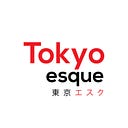Ways to Break into Japan’s Organic Market
By Melissa Francis (23/06/2021)
Since 2008, growth in Japan’s organic market has been marginal. Still, overall Japanese consumer awareness of organic as a concept is on the rise, along with other categories like free-from, natural, and vegan. Supermarkets like AEON have been increasing their line-up of organic and natural products in order to meet the growing demand, including everyday staples like rice, miso and tea.
Japan also has few organic exports to other countries, with what is produced being consumed domestically. Australia, the US and Europe are some of the key international markets exporting their organic goods to Japan. Because Japanese consumers are still learning about the benefits of organic and what sets it apart, there is significant room for development over the next few years.
When it comes to exporting Japanese organic products, the leading supplier is MITOKU. Retail stores like French chain Bio c’ Bon and some specialist supermarkets also keep a decent selection of organic produce available, and they are also active in educating customers about the benefits of organic. Neighbourhood supermarkets also provide displays of locally-grown, organic produce although this can be seen mostly in rural areas.
One of the big reasons Japanese farmers don’t adopt organic methods is the sheer expense of doing so. Because of this, there are many opportunities for international organic players to tap into the market. It can be costly for smaller producers to distribute local organic goods which, in turn, has an impact on the final retail mark up. For this reason, when Japanese farmers do go down the organic route, they usually choose to join co-ops with several thousand other members so they can lower overall costs down and receive greater benefit.
Popular Imported Organic Products in Japan
Rather than fruits or vegetables, pre-packaged organic food and beverages from other markets are most popular among Japanese consumers. These include; confectionery, snacks, breakfast cereals, and tea. According to Euromonitor, black, fruit and herbal teas combined will grow by 5.9% by 2024. Organic coffee, on the other hand, experienced a significant surge in growth between 2014–2019, at a rate of 20.4%.
Not only food and beverages, but also beauty and personal care brands are gravitating towards incorporating more naturally-sourced, organic certified ingredients, signifying a diversification of Japan’s organic market. Organic certifications like ECOCERT are recognised as a mark of safety and trust among consumers looking for healthier skincare and cosmetics. This has especially been the case throughout the pandemic when consumers have realised their desire for products that are as natural and unharmful as possible. Since anti-ageing is a huge category within Japanese healthcare, organic products naturally fit alongside the burgeoning Japanese scientific developments that are shaping the category.
Opportunities for Organic in Japan
- Japan maintains a strong demand for organic products from overseas brands.
- Japanese consumers deem international organic products to be of premium quality.
- Organic items fall into similar categories as natural, sustainable, and vegan.
- Japan’s organic market was valued at $1.8 billion in 2020, having grown annually by 12% YoY from 2016–2020. The Japanese natural food market was before estimated at approximately $6 billion, suggesting that the organic market may have massive growth potential.
- In 2020, only 0.5% of farmland in Japan was organic, and Japan’s Ministry of Agriculture aims to raise this to 25% by 2050. Foreign businesses could wish to enter the market at this time before it becomes more saturated with domestic competitors.
Challenges in Japan’s Organic Market
- With the exception of specialist stores like French chain Bio c’ Bon, routes to market for organic products in Japan can be tricky. As of 2021, 34% of organic product sales occurred in such stores.
- It can be hard to differentiate ‘organic’ from more dominant categories like ‘health and wellbeing’ and ‘natural’.
- Although it’s changing, there is a low overall consumer awareness around ‘organic’ as a concept. According to the OMRP, only 5% of consumers understand the meaning of the word “organic” properly.
- Consumers of organic products in 2020 struggled with high prices — expressing a willingness to pay a 20–30% premium for organic products where the standard premium sat significantly higher at 50%.
Steps You can Take to Enter the Organic Market in Japan
Do your research
Find out what resonates with Japanese consumers and how your product will be received. The importance of this stage should not be underestimated. For instance, you might want to know if your brand message has the same level of impact as it does in your home territory or other international markets you export to.
Get the right advice on organic certification
As mentioned earlier, the process of obtaining organic certification can take time and expense, so making sure you liaise with experts who really know their stuff is crucial. Japan has strict criteria for ensuring that the correct labelling is featured on product packaging, and Japan’s organic market is no exception. Once you’ve decided to export to Japan, we would strongly recommend going to one of the following certification providers who will be able to guide you in the right direction.
Find unique ways to connect with Japanese consumers
It’s rarely enough just having an amazing product. In general, Japanese love gathering information and it can take time to make a decision about which items to purchase. So invest in a solid PR & marketing strategy. Especially with organic, there may be a high level of curiosity around the farming process, the story behind the brand’s development, and why organic should matter as part of everyday life. What makes your products stand out and how can they appeal within the context of Japan? Localising your website for Japan and having customer touchpoints can also strengthen your position.
Let us know if you are an organic brand looking to take your products to Japan’s organic market - we would love to hear from you!
